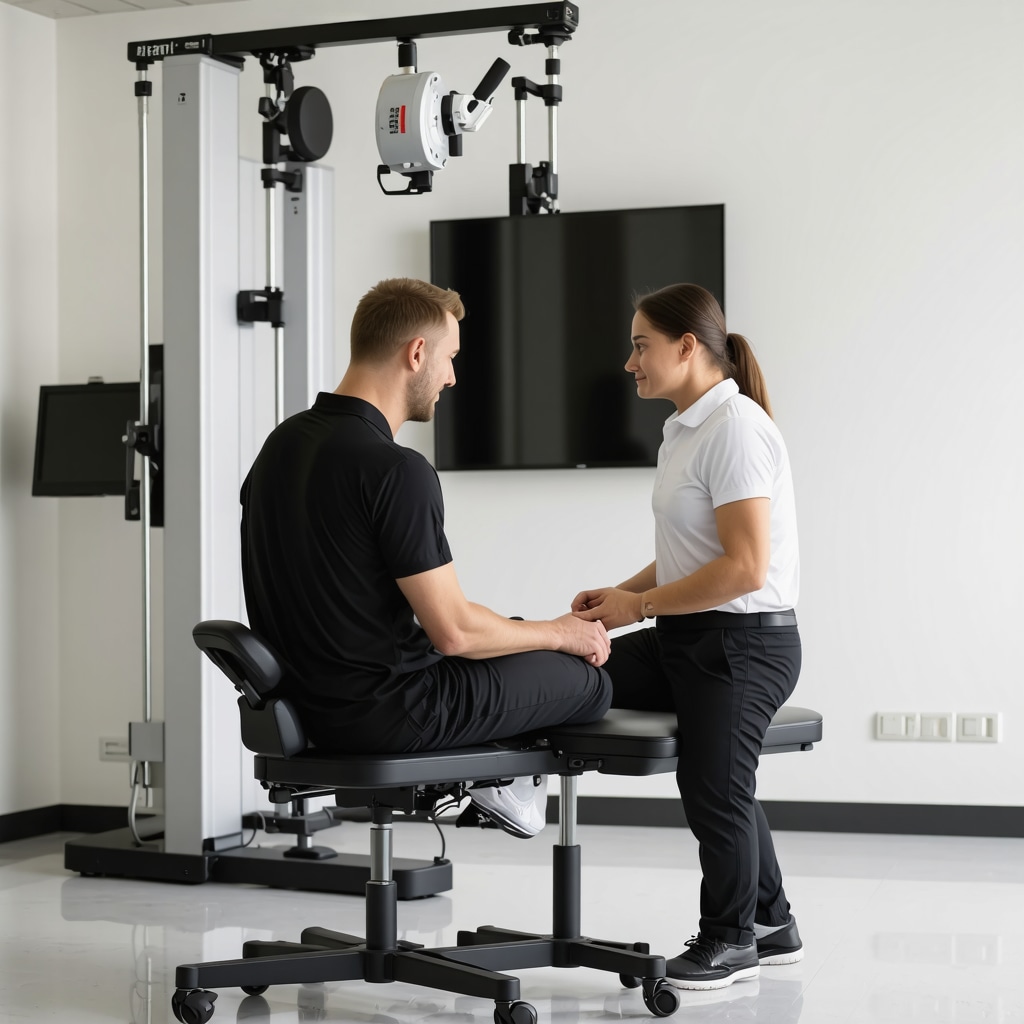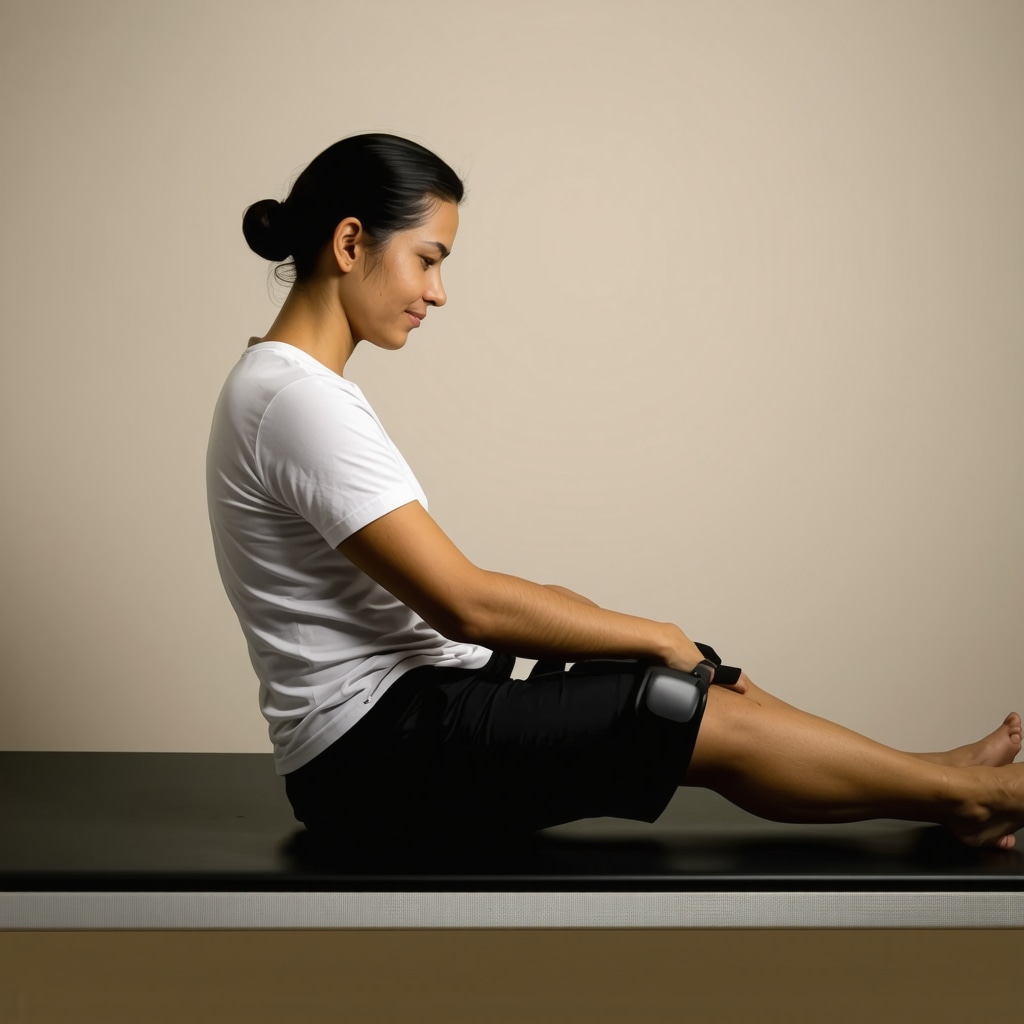My Unexpected Encounter with an Injury: The Starting Point of My Healing Journey
It all began on an ordinary day at work when a sudden slip resulted in a painful back injury. Like many injured workers, I faced the daunting challenge of recovery, feeling overwhelmed by the process ahead. However, my experience taught me valuable lessons on how to approach orthopedic rehabilitation with a positive mindset and practical strategies.
Discovering the Power of Personalized Orthopedic Care
Initially, I underestimated the importance of consulting with top orthopedic specialists. Choosing the right orthopedic surgeon was crucial in my recovery. I learned that personalized treatment plans tailored to my injury, age, and lifestyle significantly improved my healing process. Expert care, combined with evidence-based practices, helped me regain mobility faster and with less pain.
My Favorite Tips for Effective Rehabilitation
One of the most impactful strategies I adopted was engaging in targeted orthopedic rehab exercises. These exercises were designed to strengthen my back and core muscles, which are vital for supporting spinal health. I also discovered the benefits of non-surgical options, such as non-invasive therapies, which helped reduce inflammation and pain without the need for surgery.
How Do I Know When I’m Making Real Progress?
This question often crossed my mind during recovery. Progress isn’t always linear, but I found that consistent physical therapy, proper rest, and listening to my body’s signals made a difference. Regular follow-ups with my orthopedic team allowed me to adjust my rehab plan as needed. For detailed guidance, I recommend reading about orthopedic follow-up tips.
The Role of Mental Resilience During Recovery
Recovering from an injury is not just physical — it’s mental, too. Staying positive and patient helped me overcome setbacks. I also learned that engaging in light activities and maintaining social support were essential for my mental health. Remember, recovery is a journey, and embracing patience is key.
Is It Possible to Speed Up Recovery Without Surgery?
Absolutely! Many injured workers find that conservative management, including physical therapy, pain management, and lifestyle modifications, can lead to excellent outcomes. For instance, spinal decompression therapy has helped many reduce symptoms effectively. Consulting with experienced orthopedic specialists ensures you choose the best approach for your unique situation.
If you’re navigating your own recovery, don’t hesitate to reach out for professional guidance. You can contact qualified orthopedic clinics through this link. Also, I invite you to share your experiences or ask questions in the comments below — we’re in this healing journey together!
Remember, proper orthopedic care and a proactive attitude are your best allies in returning to full strength. For more insights, I recommend exploring trusted sources such as the American Academy of Orthopaedic Surgeons.
Understanding the Nuances of Post-Surgical Rehabilitation
Recovering from lumbar fusion surgery is a complex process that requires a tailored approach. While many patients focus on physical therapy and lifestyle modifications, an often-overlooked aspect is the importance of understanding your specific surgical procedure and how it impacts your rehabilitation plan. Consulting with top orthopedic spine specialists ensures that your recovery strategy aligns with your unique needs, promoting optimal healing and long-term spinal health.
The Crucial Role of Nutritional Support in Healing
Did you know that nutrition plays a pivotal role in your recovery? Adequate intake of protein, vitamins, and minerals like calcium and vitamin D supports tissue repair and bone fusion. Incorporating nutrient-rich foods or discussing supplementation with your healthcare provider can significantly enhance your healing trajectory. For personalized nutritional advice, consider visiting a specialist or reading authoritative guides from sources like the American Academy of Orthopaedic Surgeons.
How Can Mind-Body Techniques Accelerate Recovery?
Beyond physical therapy, mental resilience and stress management techniques such as mindfulness, meditation, or guided imagery can positively influence healing outcomes. Reducing stress hormones like cortisol has been linked to improved immune function, which is vital for recovery. Integrating these practices into your daily routine may help you stay motivated and patient through the sometimes lengthy rehabilitation process.
What Are the Potential Pitfalls in Post-Operative Care?
One common mistake is overexertion too early, which can compromise the fusion process and prolong recovery. Conversely, inactivity can lead to muscle atrophy and stiffness. Striking the right balance, guided by your orthopedic team, is essential. Regular follow-ups and adherence to prescribed exercises from rehab specialists prevent setbacks and ensure steady progress.
Could Alternative Therapies Complement Surgical Recovery?
Emerging evidence suggests that modalities like spinal decompression therapy and acupuncture can complement traditional rehab. These treatments may relieve residual pain and improve mobility, but should always be discussed with your healthcare provider to avoid interfering with your surgical healing. Integrating such options requires careful consideration and expert guidance to ensure safety and efficacy.
For those seeking comprehensive support, engaging with multidisciplinary teams that include physical therapists, nutritionists, and mental health professionals can make a significant difference. Remember, recovery isn’t just about the physical healing of the spine but also about restoring your overall well-being.
If you’re eager to explore these options further, don’t hesitate to connect with experienced orthopedic clinics via this contact page. Sharing your journey or asking questions in the comments can also foster a community of support and shared knowledge among patients navigating similar paths.
Stay proactive and informed—your commitment to holistic care can dramatically influence your recovery outcomes. To deepen your understanding, I recommend checking out trusted resources like the American Academy of Orthopaedic Surgeons for the latest research and guidelines.
Unveiling the Complexity of Post-Operative Recovery: My Personal Journey and Reflections
Reflecting on my own experience with post-surgical rehabilitation, I realize that understanding the nuanced differences in recovery pathways is crucial. Each patient’s journey is uniquely shaped by the specifics of their surgery, overall health, and the quality of care received. This realization deepened my appreciation for the tailored approaches recommended by top orthopedic spine specialists. For instance, my recovery involved not just physical therapy but also a comprehensive review of my surgical details to optimize healing.
Beyond the Basics: Advanced Techniques in Rehabilitation and Their Personal Impact
One aspect I found particularly transformative was integrating minimally invasive techniques into my rehab regimen. These procedures, with their reduced tissue disruption, allowed for a faster return to mobility and less postoperative discomfort. I also explored innovative modalities like targeted nerve stimulation and biofeedback, which enhanced my progress. These approaches underscore the importance of staying informed about emerging therapies, as they can significantly influence outcomes.
Deepening Understanding: The Role of Patient Education and Multidisciplinary Care
My experience taught me that patient education is a cornerstone of successful recovery. Engaging with a multidisciplinary team, including physical therapists, nutritionists, and mental health professionals, created a supportive environment that addressed my physical and emotional needs. This holistic approach, advocated by leading orthopedic care models, proved essential in overcoming setbacks and maintaining motivation during challenging phases.
Addressing the Sophisticated Questions: How Can Patients Optimize Their Recovery Plans?
What advanced strategies can patients adopt to tailor their rehab for long-term success?
Personalized rehab plans that incorporate evidence-based practices, cutting-edge therapies, and continuous monitoring are key. For example, integrating non-invasive spinal decompression can alleviate residual pain and improve function, especially when combined with lifestyle adjustments such as ergonomic modifications and nutritional support. Regular follow-ups and open communication with your care team ensure that your plan evolves with your progress.
My advice is to remain proactive, seek out the latest advancements, and never hesitate to ask your healthcare providers about new options that could enhance your recovery. Sharing your experiences or questions in the comments can foster a community where knowledge and support flourish. Remember, recovery is as much about mental resilience and informed decision-making as it is about physical healing.
The Future of Post-Surgical Rehabilitation: Embracing Innovation and Personalization
Looking ahead, the integration of technology, such as wearable devices and tele-rehabilitation platforms, promises to revolutionize recovery experiences. These tools offer real-time feedback and personalized adjustments that can optimize healing trajectories. Personally, embracing such innovations during my rehab journey made me feel more in control and motivated to adhere to my plan.
As I continue to explore and share insights from my recovery, I encourage everyone to stay curious and engaged with advances in orthopedic care. Whether through reading authoritative sources like the American Academy of Orthopaedic Surgeons or connecting with local specialists, empowering yourself with knowledge is the first step toward a successful recovery.

Harnessing Cutting-Edge Technology to Optimize Post-Operative Outcomes
As someone deeply immersed in orthopedic care, I have witnessed firsthand how innovative technological tools can revolutionize recovery trajectories. Wearable devices, for instance, offer real-time monitoring of movement and posture, empowering patients to adhere more effectively to prescribed rehabilitation exercises. Tele-rehabilitation platforms facilitate continuous engagement with specialists, ensuring that progress is tracked meticulously and adjustments are made promptly. Integrating these technologies into personalized care plans has demonstrated significant improvements in long-term spinal health, especially for complex cases such as multi-level lumbar fusions.
Deepening Insights into Multidisciplinary Care Models
The synergy of a multidisciplinary approach cannot be overstated. My experience underscores the importance of collaboration among orthopedic surgeons, physical therapists, nutritionists, and mental health professionals. This holistic care model addresses not only the physical aspects of healing but also emotional resilience and lifestyle modifications. For example, nutritional counseling enhances bone fusion by ensuring adequate intake of vital nutrients, while mental health support fosters patience and mental clarity during prolonged recovery phases. Such comprehensive strategies are increasingly supported by research, with studies indicating improved patient satisfaction and reduced recurrence of issues like herniated discs (American Academy of Orthopaedic Surgeons).
What Are the Latest Evidence-Based Interventions for Accelerated Bone Fusion?
Advances in biologics, such as platelet-rich plasma (PRP) therapies and stem cell applications, are promising avenues to accelerate bone fusion. These interventions aim to stimulate osteogenesis directly at the surgical site, reducing healing time and enhancing fusion stability. While still under rigorous clinical evaluation, preliminary results suggest that integrating biologic agents with traditional fixation techniques may offer superior outcomes. Staying abreast of these developments is crucial for practitioners aiming to provide state-of-the-art care, and I recommend consulting reputable sources and attending specialized conferences to remain informed.
How Can Patients Tailor Their Rehabilitation for Long-Term Success?
Personalization of rehab plans involves continuous assessment and adaptation based on individual progress, comorbidities, and lifestyle goals. I advise patients to maintain open communication with their care teams, utilize technology-enabled monitoring tools, and incorporate evidence-based exercises that strengthen core stability and flexibility. Regular follow-ups ensure the rehabilitation remains aligned with evolving needs, fostering durable spinal health. If you’re interested in exploring innovative rehab strategies, I encourage you to connect with top specialists and share your experiences or questions—this collaborative approach often yields the best results.
<
Things I Wish I Knew Earlier (or You Might Find Surprising)
The Hidden Power of Patient Education
Looking back, I realize that understanding my surgical procedure and recovery options sooner could have made a huge difference. Educating myself about the nuances of post-operative care helped me feel more in control and less anxious about the process.
The Surprising Benefits of Holistic Approaches
Integrating mind-body techniques like mindfulness and meditation not only eased my stress but also seemed to accelerate my healing. These practices helped me stay patient and motivated during tough days.
The Importance of Personalized Care Plans
One size doesn’t fit all in orthopedic recovery. My experience taught me that tailored rehab programs, created with top orthopedic specialists, yield better outcomes and faster healing.
The Role of Emerging Technologies
Using wearable devices to monitor my progress and engaging in tele-rehab sessions made a noticeable difference in my recovery journey. Staying connected with my care team and tracking my improvement kept me motivated and on track.
Nutrition as a Foundation for Healing
Consuming nutrient-rich foods, especially those high in protein, calcium, and vitamin D, supported my bone healing process. It’s amazing how much diet influences recovery outcomes.
How Support Networks Impact Recovery
Having a strong social support system and engaging with others who shared similar experiences provided emotional strength. Sharing stories and tips created a sense of community that boosted my resilience.

